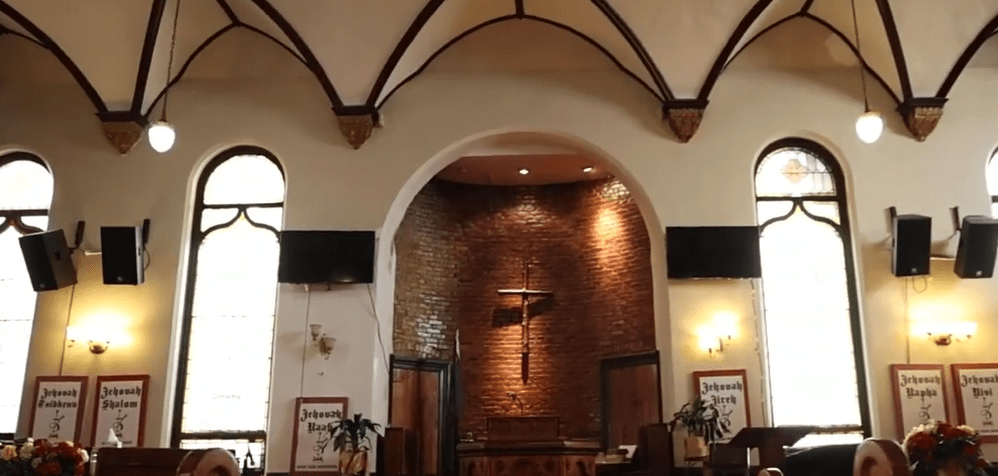Michal Sallem was a well-known lawyer and former youth leader whose life demonstrated a strikingly successful fusion of legal knowledge and moral commitment. In recent days, tributes to him have poured in from all over Slovakia. Colleagues, public figures, and those who subtly benefited from his behind-the-scenes contributions to public law and civic life have all been profoundly affected by his passing in July 2025.
Sallem didn’t like to show off. He liked detail over spectacle, hard work over show. He received his training at the Law Faculty of Comenius University and immediately established himself as a remarkably lucid legal thinker. He has provided advice to many Slovak municipalities, ministries, and government organizations over the last 20 years, frequently working on legally challenging matters like zoning, public contracts, and mergers involving regulatory oversight.
In addition to being technically sound, his legal approach had strong moral foundations. He held that the moral foundation of the law should never be compromised. That conviction, which is especially uncommon in hectic legal settings, made him a highly regarded advisor in circumstances requiring both judgment and discretion. He approached every case with careful attention to detail and principled reasoning, whether it was organizing administrative frameworks for city councils or sorting out property law disputes.
Biographical Table
| Full Name | Michal Ján Sallem |
|---|---|
| Date of Birth | Not publicly disclosed |
| Date of Death | July 2025 |
| Nationality | Slovak |
| Residence | Bratislava, Slovakia |
| Education | Comenius University – Law Faculty |
| Professional Titles | Attorney, Partner at ALMOND LEGAL |
| Key Roles | Former Chairman of KDMS (1992–1993) |
| Legal Expertise | Administrative, real estate, business, and construction law |
| Political Affiliation | Christian Democratic Movement (KDH) |
| Public Service | Advisor to regional governments and state agencies |
| Reference Profile | https://spravy.pravda.sk/domace/clanok/760144-zomrel-uznavany-pravnik-sallem-stal-na-cele-mladych-krestanskych-demokratov |

Sallem contributed to the creation of policies that were both socially and legally sound by working with government organizations. He frequently worked on local governance projects, particularly assisting municipalities in creating agreements that benefited their residents rather than special interests. He served as the legal foundation for greater public accountability in many respects.
Sallem entered public service with a natural assurance in the early 1990s, when Slovakia was redefining its political identity. He helped establish the movement’s organizational and ideological underpinnings while serving as chairman of the Young Christian Democrats (KDMS) in 1992 and 1993. At the time of his leadership, young people in Slovakia were looking for real political involvement. That authenticity came from Sallem. He was listening, establishing a connection, and converting moral reasoning into workable policy rather than imposing his views.
During his tenure, KDMS, which was established as a civic endeavor to inspire young Christian thinkers, flourished. Senior leaders like Ján Čarnogurský encouraged KDMS to establish grassroots forums where young Slovaks could express their opinions. Many have characterized Sallem’s role as stabilizing and wise beyond his years, which contributed to the institutionalization of this burgeoning civic momentum.
His subdued impact over the years extended far beyond youth politics. He never wavered in his strong ties to the Christian Democratic Movement (KDH). Milan Majerský, the leader of the party, said the party would be much poorer without him and praised him as a man whose sense of divine order and legal discipline served as inspiration. The sincerity of that sentiment, which was shared by many, was especially remarkable.
The constant consistency that set Sallem apart from other legal minds was what really made him unique. He stayed rooted while others moved with the political winds. He continued to provide high-standard, humble advice despite shifting governments and changing laws. Particularly in times of political unrest when less experienced professionals might make concessions, his moral compass was incredibly trustworthy.
It is impossible to ignore how deeply friends and peers felt about his death. Miriam Lexmann, a member of the European Parliament, described Sallem as “like a brother,” highlighting the fact that their bonds extended well beyond work. In a similar vein, Richard Rybníček, the mayor of Trenčín, recalled him as noble and wise. The respect accorded to prominent European moral figures—people whose presence uplifts those around them—seems remarkably similar to these responses.
Sallem wasn’t looking for attention. Actually, a large portion of his work involved strategic silence—leading discussions, creating legal solutions, offering honest advice, and never seeking praise. However, his impact was profound, especially for those who personally experienced the effects of his advice. His career is a powerful illustration of how influence does not always equate to being in the public eye.
His legacy is especially helpful to legal professionals throughout Europe. Sallem exemplified a highly effective yet humane method in a field that was becoming more and more dominated by speed, efficiency, and profit. He supported thoughtful consideration, slow thinking, and respect for the democratic frameworks he was assisting in creating. His approach inspired others to rethink the practice of law as a community service rather than a client-focused one.
Many have highlighted his humility and soft-spoken demeanor since his death was announced. But beneath that serene exterior was a fervent supporter of honesty. Despite his measured tone, there was substance in his voice. He helped create policies that endured through years of collaboration with organizations and people, resulting in legal environments that were both morally and structurally sound.
There is a void in Sallem’s absence, especially in Bratislava’s political and legal circles. But his relationships and ideas are still there, like the scaffolding that keeps supporting the things he helped create. The legal sensibilities he promoted—considerate, accountable, and never performative—will surely be carried on by his students, colleagues, and allies in the years to come.

